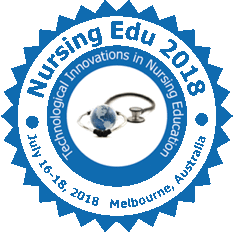
TAN Yew Hiang
Tan Tock Seng Hospital, Singapore
Title: Nurses’ perception on non-technical skills (nts) in simulation based crisis management training
Biography
Biography: TAN Yew Hiang
Abstract
The non-technical skills (NTS) are critical for individual and team to function well during crisis management. This study aims to identify the current NTS gaps, strategies to overcome the gaps, preferred learning methods and motivating factors for learning NTS behaviours relevant to the crisis management in nursing context.
Fifty Registered Nurses (RN) and Enrolled Nurses (EN) were recruited. Nurses’ performance during role play and group debriefing were video and audio-recorded. A short survey on the study focal areas with gained learning points from the debriefing was collected.
Nurses perceived “Poor communication”, “Lacking teamwork” and “Inadequate knowledge” as the major NTS gaps; “Reading”, “Reflecting” and “Consulting seniors” as strategies to overcome the gaps; “Role playing” and “debriefing” as preferred learning methods; “Seeing video playback” and identifying “good and improvement areas” during debriefing as motivating factors for practice change.
Self-directed learning (i.e. reading, reflecting, consulting seniors) is useful to heighten the key NTS behaviours (i.e. Good communication, teamwork and adequate knowledge). The effectiveness of the simulation role play and debriefing could create impact and harness desired NTS behaviours for performance improvement and motivate positive practice change among nurses.
The results provided us insights about NTS and the program. Instructional simulation could employ as an innovative learning provision to enhance nurses’ knowledge and skills for NTS gaps closure and positive practice change to take place. Further study to examine learning transfer is recommended to achieve practice excellence for nurses.
The NTS gaps should be tightened to improve nursing standard practice. The application of the underlying NTS principles, addressing the NTS gaps and attending to individual inadequacies are key challenges to be addressed.

